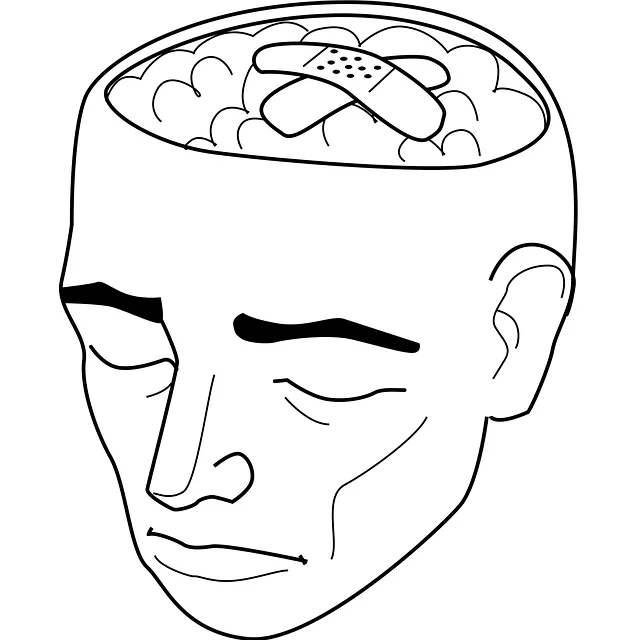Kaiser Trauma Therapy (KTT) offers a revolutionary, holistic approach to treating traumatic experiences by combining cognitive processing therapy (CPT) and emotional processing therapy (EPT). This method focuses on the mind-body connection, creating safe environments for patients to process traumatic memories, emotions, and sensations. KTT aims to enhance resilience, reduce PTSD symptoms, promote healing, and improve overall well-being. As an evidence-based practice, it has shown promising results in various settings, using gentle techniques like meditation and mindfulness to create supportive spaces, leading to improved mental health outcomes, enhanced quality of life, and increased resilience among participants.
“Trauma-informed care is transforming healthcare, and Kaiser Trauma Therapy leads the way. This comprehensive approach ensures every patient receives support tailored to their traumatic experiences, fostering better health outcomes.
Our article delves into the world of Kaiser Trauma Therapy, exploring its impact on patient lives and its practical implementation in various healthcare settings. We present case studies showcasing successful trauma-informed care, highlighting its potential to revolutionize healing.”
- Understanding Kaiser Trauma Therapy: A Comprehensive Approach
- The Impact of Trauma-Informed Care on Patient Outcomes
- Implementing Kaiser Trauma Therapy in Healthcare Settings
- Case Studies: Success Stories of Trauma-Informed Care
Understanding Kaiser Trauma Therapy: A Comprehensive Approach

Kaiser Trauma Therapy represents a comprehensive approach to addressing traumatic experiences and their lasting effects. This method recognizes that trauma impacts not just the mind but also the entire body, leading to physical symptoms alongside psychological distress. By integrating various therapeutic techniques, such as cognitive processing therapy (CPT) and emotional processing therapy (EPT), Kaiser offers a holistic healing journey for individuals struggling with post-traumatic stress disorder (PTSD) or other trauma-related conditions.
The therapy focuses on helping clients safely process and make sense of their traumatic memories, emotions, and bodily sensations. This involves creating a supportive environment where individuals feel understood and empowered to confront and ultimately overcome their trauma. Through adaptive techniques tailored to each person’s unique needs, Kaiser Trauma Therapy aims to enhance resilience, reduce symptoms, and promote overall well-being for those who have experienced trauma.
The Impact of Trauma-Informed Care on Patient Outcomes

Trauma-informed care, as offered by organizations like Kaiser Trauma Therapy, has a profound impact on patient outcomes, particularly for individuals dealing with anxiety disorders and PTSD. This approach recognizes that trauma shapes an individual’s experiences and behaviors, and it adapts traditional therapy methods to address these complex impacts. By incorporating non-traditional therapy techniques, Kaiser therapists help patients process traumatic memories and develop healthier coping mechanisms.
The benefits are evident in improved patient engagement, enhanced treatment adherence, and better overall mental health outcomes. Alternative treatment for PTSD, such as those available through kaiser therapy training programs, focuses on creating a safe and supportive environment where individuals can explore their traumatic experiences without judgment. This personalized approach not only aids in managing symptoms but also fosters resilience, allowing patients to lead fulfilling lives despite their past traumas.
Implementing Kaiser Trauma Therapy in Healthcare Settings

Implementing Kaiser Trauma Therapy (KTT) in healthcare settings has emerged as a powerful approach to addressing complex trauma and its associated disorders. This non-traditional therapy for anxiety disorders is gaining recognition for its ability to facilitate healing from abuse naturally, offering a unique and effective method of care. The KTT model emphasizes the creation of safe, supportive environments that honor the individual’s narrative, which is crucial in fostering trust and engagement.
Healthcare professionals who incorporate KTT into their practices can provide specialized treatment options for individuals struggling with trauma-related symptoms. By integrating this kaiser method certification online, clinical teams can enhance their understanding of trauma’s impact on mental health and learn practical techniques to support healing. This evidence-based practice has shown promising results in helping clients process traumatic memories, regulate emotions, and develop healthier coping mechanisms, ultimately improving overall well-being.
Case Studies: Success Stories of Trauma-Informed Care

Trauma-informed care has been successfully implemented in various settings, with notable case studies highlighting its transformative power. One such example is the Kaiser Trauma Therapy program, which has shown remarkable results in helping individuals heal from complex traumatic stress. By employing gentle ways to overcome trauma, this approach focuses on the mind-body connection, recognizing that trauma often manifests physically as well as emotionally.
Through innovative practices, including trauma resolution through meditation and other mindfulness techniques, Kaiser’s therapy model creates a safe space for clients. This environment encourages them to process and release traumatic memories while developing coping strategies for current challenges. The case studies reveal improved mental health outcomes, enhanced quality of life, and increased resilience among participants, demonstrating the effectiveness of trauma-informed care in fostering healing and restoration.
Trauma-informed care, as exemplified by Kaiser Trauma Therapy, is a transformative approach that prioritizes understanding and addressing past traumatic experiences. By adopting this comprehensive strategy, healthcare settings can significantly improve patient outcomes. The success stories shared in the case studies highlight the positive impact of implementing kaiser trauma therapy, demonstrating its potential to foster healing and well-being among individuals who have experienced trauma. As we navigate the complex landscape of mental health care, embracing trauma-informed practices like Kaiser Trauma Therapy is crucial for creating supportive environments that honor the resilience and unique needs of every patient.






